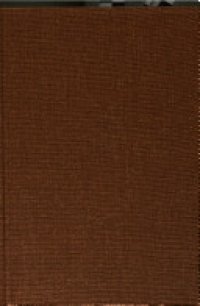
Ebook: Antithetic Structure in Biblical Hebrew Poetry
Author: Jože Krašovec
- Genre: Religion
- Tags: Exegesis Hermeneutics Criticism Interpretation Bible Study Reference Religion Spirituality Agnosticism Atheism Buddhism Hinduism Islam Judaism Literature Fiction New Age Other Eastern Religions Sacred Texts Practices Religious Art Studies Supernatural Paranormal Worship Devotion Sociology Abuse Class Death Marriage Family Medicine Race Relations Rural Social Theory Urban Politics Sciences
- Series: Supplements to Vetus Testamentum 35
- Year: 1997
- Publisher: Brill Academic Publishers
- Language: English
- pdf
This study of antithesis in biblical poetry arose out of the author’s previous work on merism in his 1977 doctoral dissertation. The present work seeks to focus on the phenomenon of antithesis per se, and to examine its role in representative examples of various biblical genres: “epic,” “psalmic,” “prophetic,” and “didactic” literature. It concludes with a list of instances of antithesis in the Hebrew Bible and an attempt at broad categorization, as well as some speculation about the origin of the basic forms of antithesis.
No doubt by its attempt to focus attention on the specific phenomenon of antithesis and its assembly of definitions and examples, this study will be of interest to some students of biblical style. Unfortunately, however, it is open to criticism on several points. To begin with, its very subject: why “antithesis”? The worthiness of this category for approaching Hebrew style is not questioned by this study, but merely assumed, perhaps because antithesis has been such a prominent feature in descriptions of classical Greek and Latin rhetoric—indeed, some of these descriptions (Aristotle, Quintilian, et al.) are marshaled in the author’s struggle to define antithesis for the Bible. But that the phenomenon he identifies as antithesis might better be approached in the context of broader aspects of biblical style, perhaps even under some other rubric, is not one of this study’s theoretical concerns: on the contrary, the author is at pains to distinguish antithesis from all manner of things that resemble it but are more properly called by other names (“merism,” for example). Yet not all such attempts at isolation and focus are necessarily helpful, and in this case the reader cannot help feeling that, on the one hand, antithesis never does get isolated and defined in any convincing fashion, and, on the other, that a consideration of antithesis along with its excluded look-alikes might have been far more enlightening.
No doubt by its attempt to focus attention on the specific phenomenon of antithesis and its assembly of definitions and examples, this study will be of interest to some students of biblical style. Unfortunately, however, it is open to criticism on several points. To begin with, its very subject: why “antithesis”? The worthiness of this category for approaching Hebrew style is not questioned by this study, but merely assumed, perhaps because antithesis has been such a prominent feature in descriptions of classical Greek and Latin rhetoric—indeed, some of these descriptions (Aristotle, Quintilian, et al.) are marshaled in the author’s struggle to define antithesis for the Bible. But that the phenomenon he identifies as antithesis might better be approached in the context of broader aspects of biblical style, perhaps even under some other rubric, is not one of this study’s theoretical concerns: on the contrary, the author is at pains to distinguish antithesis from all manner of things that resemble it but are more properly called by other names (“merism,” for example). Yet not all such attempts at isolation and focus are necessarily helpful, and in this case the reader cannot help feeling that, on the one hand, antithesis never does get isolated and defined in any convincing fashion, and, on the other, that a consideration of antithesis along with its excluded look-alikes might have been far more enlightening.
Download the book Antithetic Structure in Biblical Hebrew Poetry for free or read online
Continue reading on any device:

Last viewed books
Related books
{related-news}
Comments (0)